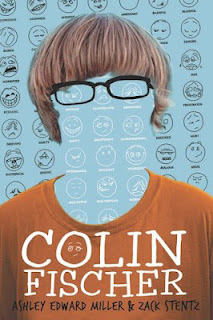As reported last spring by Jessica Samakow for the Huffington Post, Weiss's article drew the attention of bloggers who questioned her methods (A link to Samakow’s article was posted this week to a discussion board in my online women’s health class).
Jezebel author Katie J.M. Baker called Weiss’s piece “the worst Vogue article ever”:
“Weiss' initial quandary is a complicated one, to be sure: what do you do if your pediatrician tells you your child is clinically obese? But the justifications to which Weiss clings as she describes the abrasive, often irrational weight-loss strategies she imposed upon her young daughter are truly disgusting, as is the obvious fact that Weiss was projecting her hatred of her own body onto her child throughout her year-long diet. The ickiness of the essay is only overshadowed by the accompanying photos, in which Weiss and her now-slender daughter — who even Weiss admits is traumatized by the events of the past year — don miniskirts and giggle girlishly over tea.”The article was published in April in Vogue’s Shape 2012 issue.
After reading the account on Huffington Post, my main issue of concern wasn’t that the child, Bea, was overweight: although, to be sure, some of the other bloggers included in Samakow’s summary seemed to have much healthier attitudes about a child who was overweight.
One blogger wrote under the name Mom De Guerre because she said she would never put her child's well-being at stake the way that Weiss had. And Samakow described a piece by HuffPost blogger Janell Burley Hofmann as an “honest, self-accepting response.”
(Hofmann’s initial response to her daughter telling her, “I'm fat,” was, “You are built just perfect -- strong and healthy.”)
From the excerpt in Samakow’s summary, Weiss displayed a self-pitying attitude that I found distasteful:
“‘Everyone supports the mission, but no one seems to approve of my methods,’ she admits and then goes on to mention her own exhaustion: ‘It is grating to have someone constantly complain of being hungry, or refuse to eat what she’s supposed to, month after month.’”
Weiss crossed an important line when she wrote about her daughter’s weight.
I can choose for myself to share details of my life, including struggles and challenges. And there are details about my life that I don’t feel comfortable sharing, even as I readily disclose other areas. It’s my life, my choice what, and how much, to reveal.
Weiss could similarly make a choice to disclose her own struggles or insecurities. But her daughter Bea did not get to make that choice; Weiss took the choice from her daughter.
Now that Weiss’s book has been published, Bea’s life will be exposed before that many more people, in a story that, based on advance praise, casts Weiss and not Bea in the role of heroine. Weiss does not deserve to be financially rewarded for violating her daughter’s privacy.
My thanks to Cuesta College instructor Allison Merzon for posting a link to the Huffington Post article on our women’s health class discussion board.













